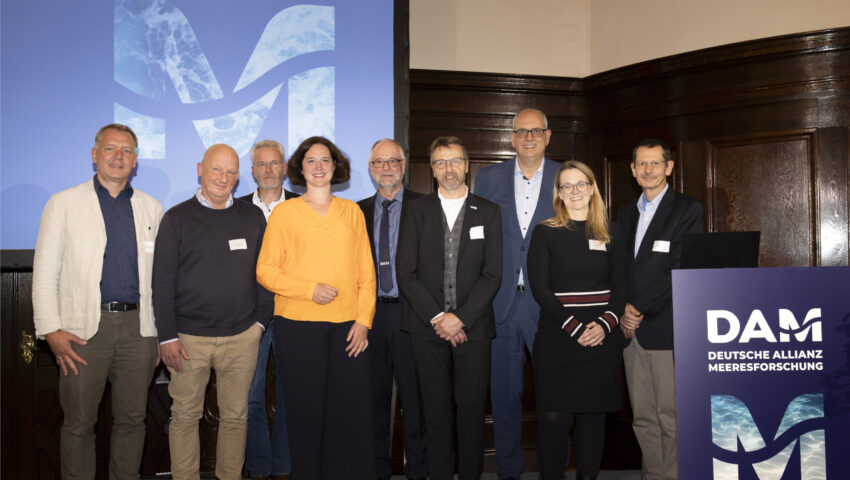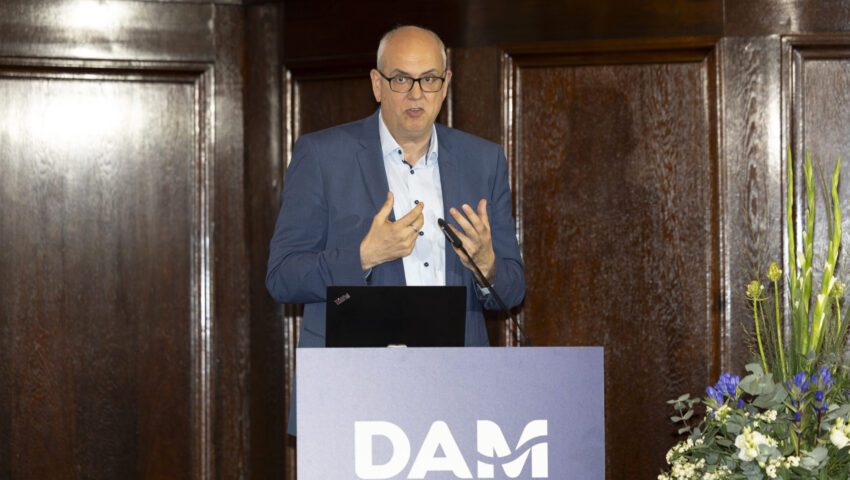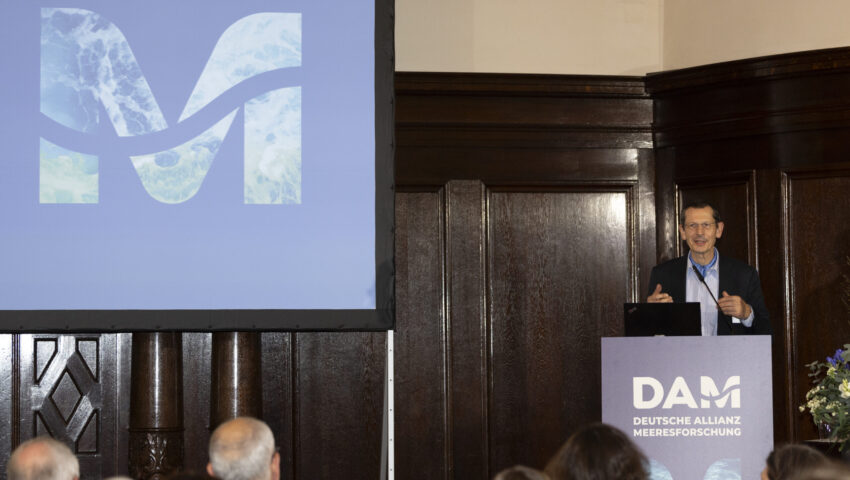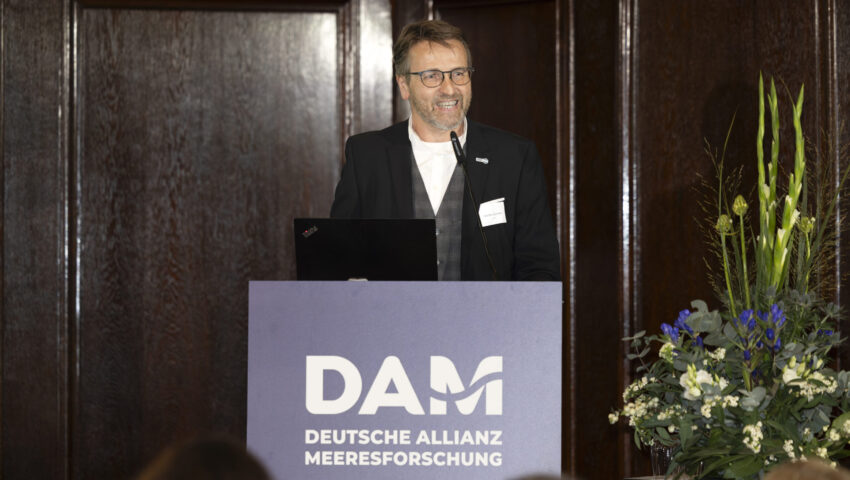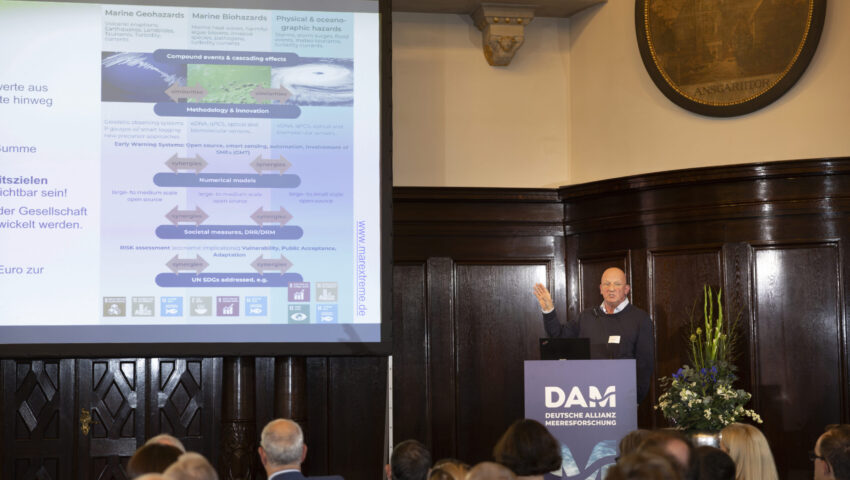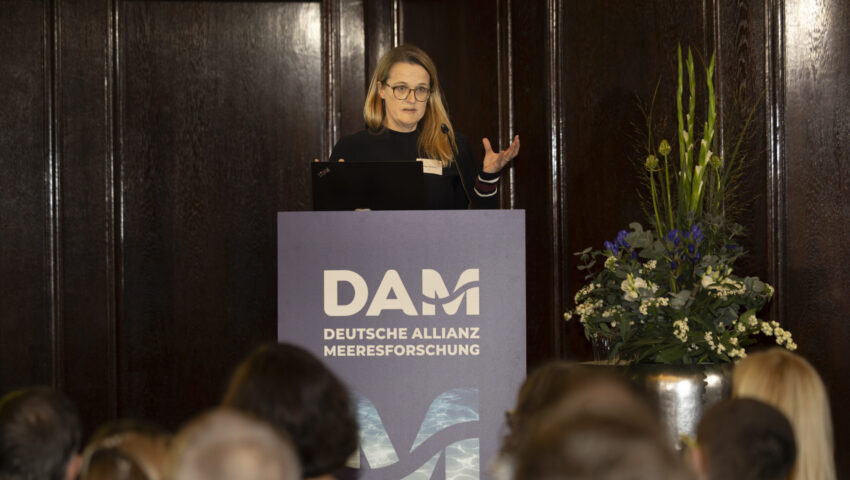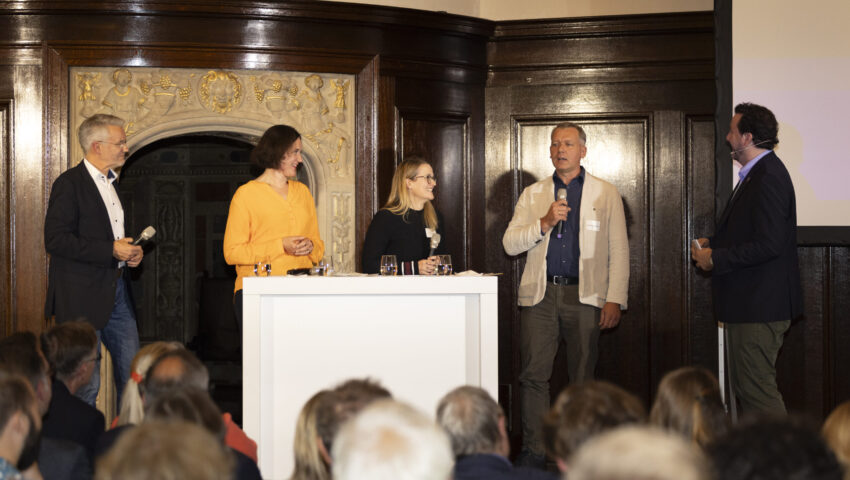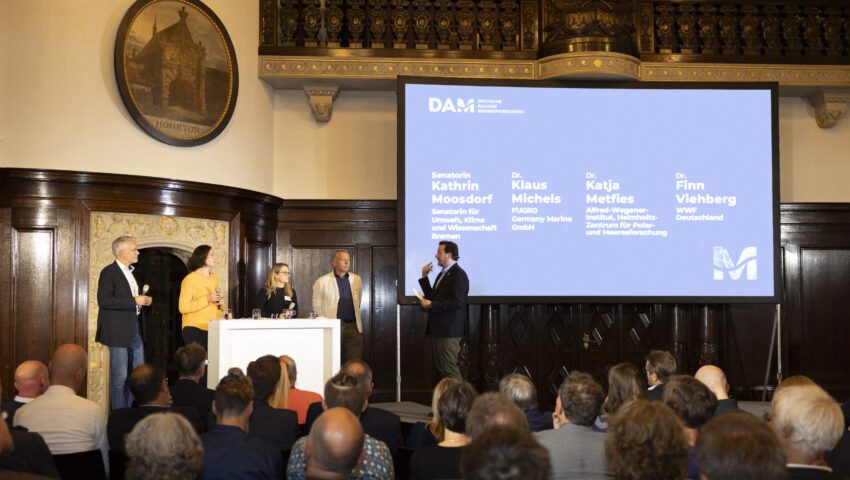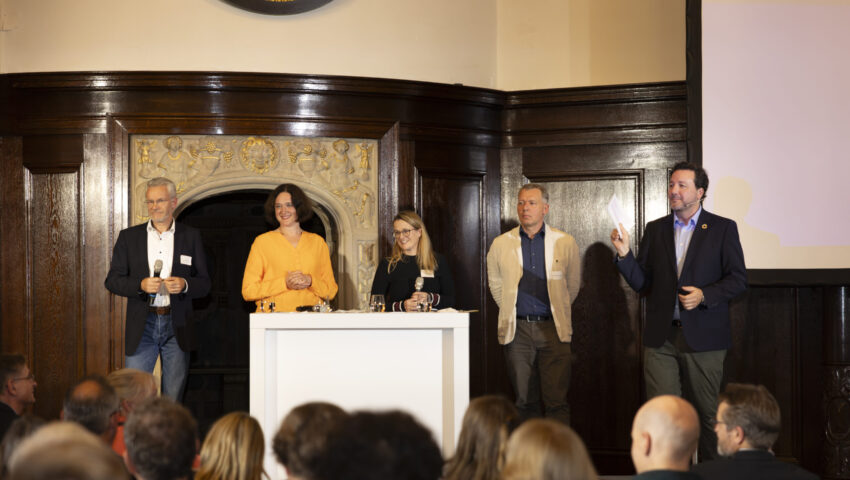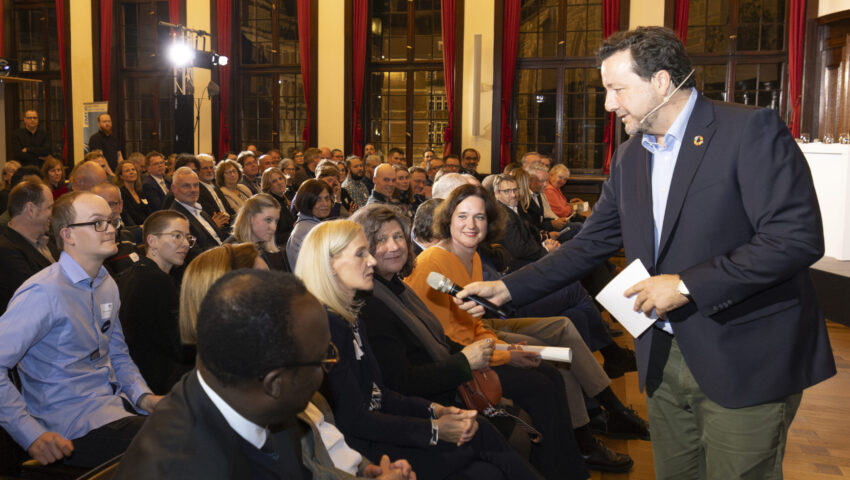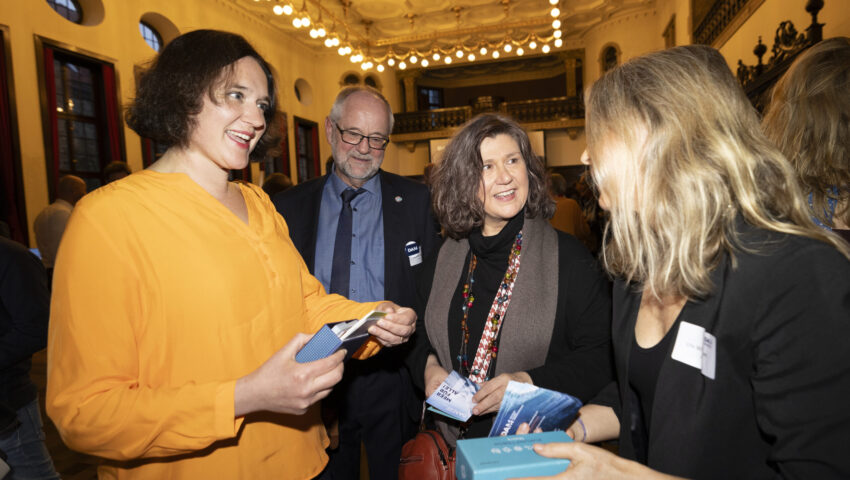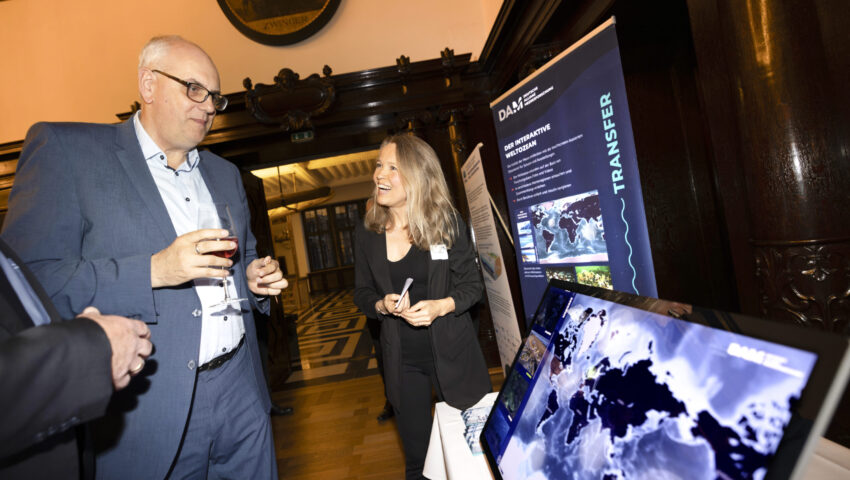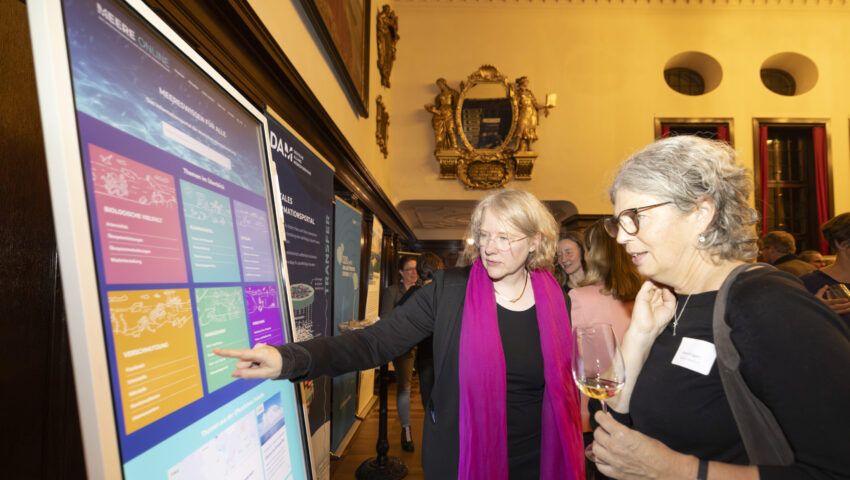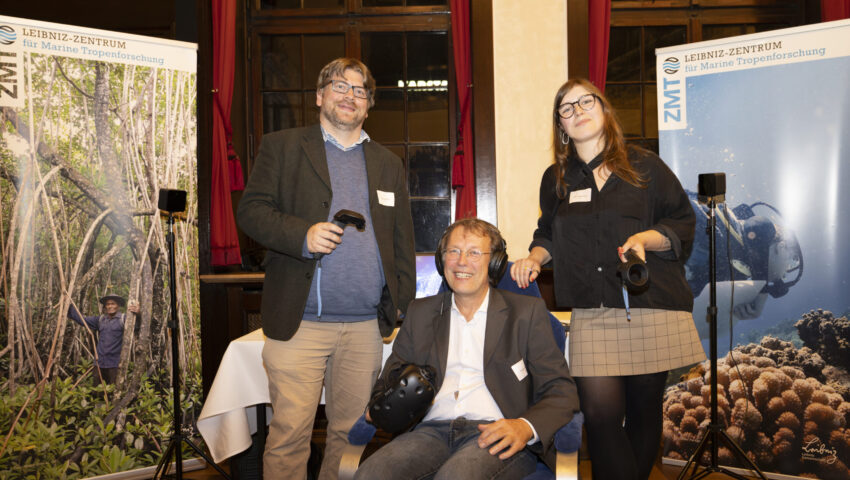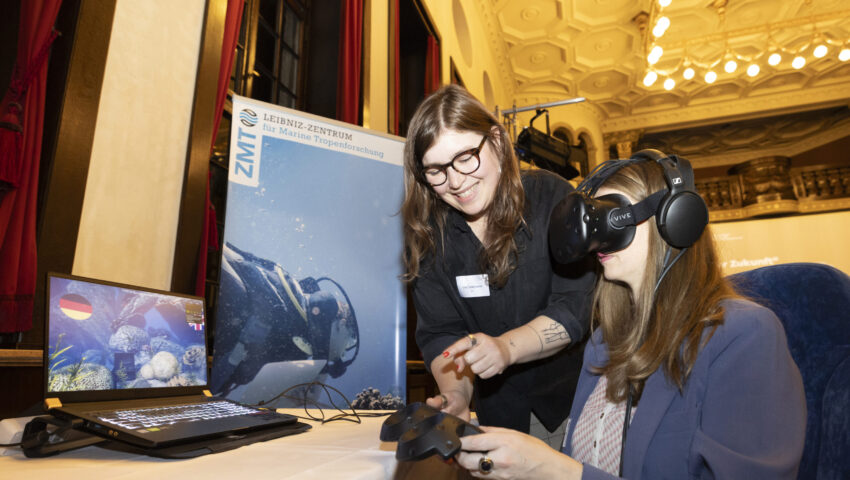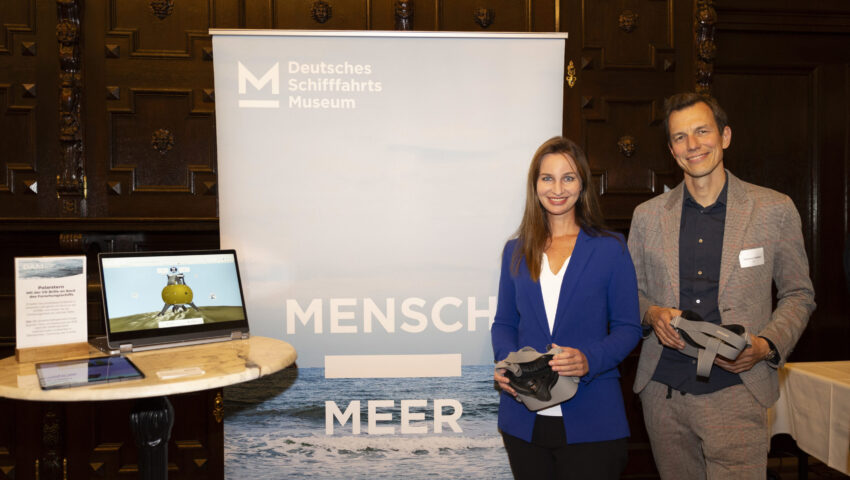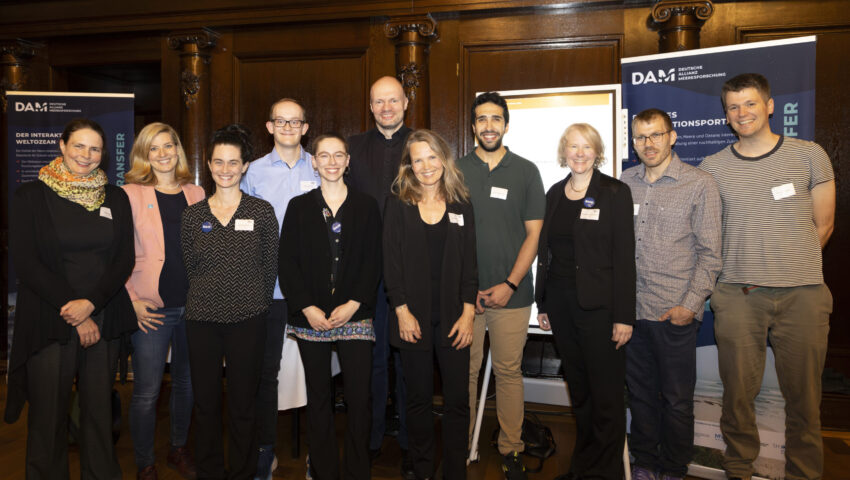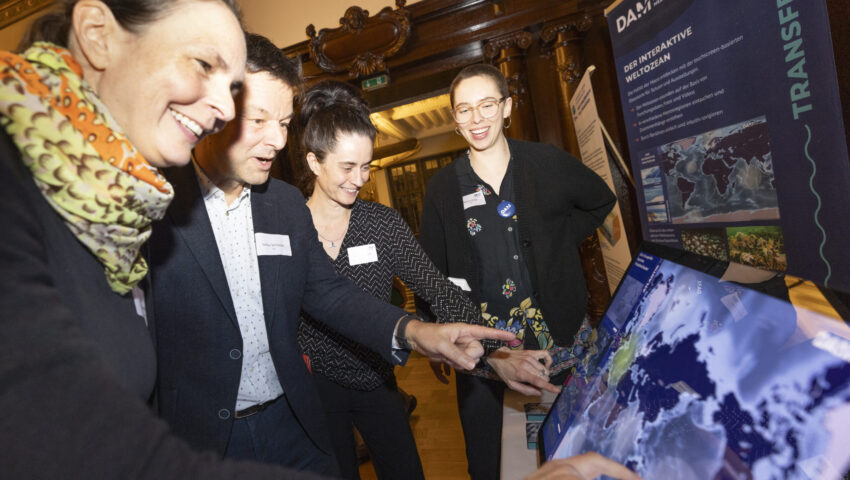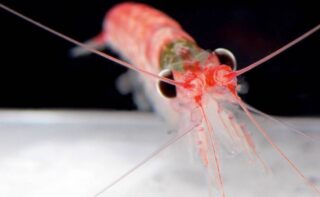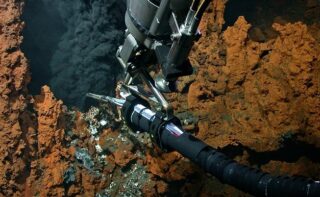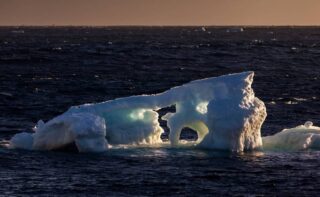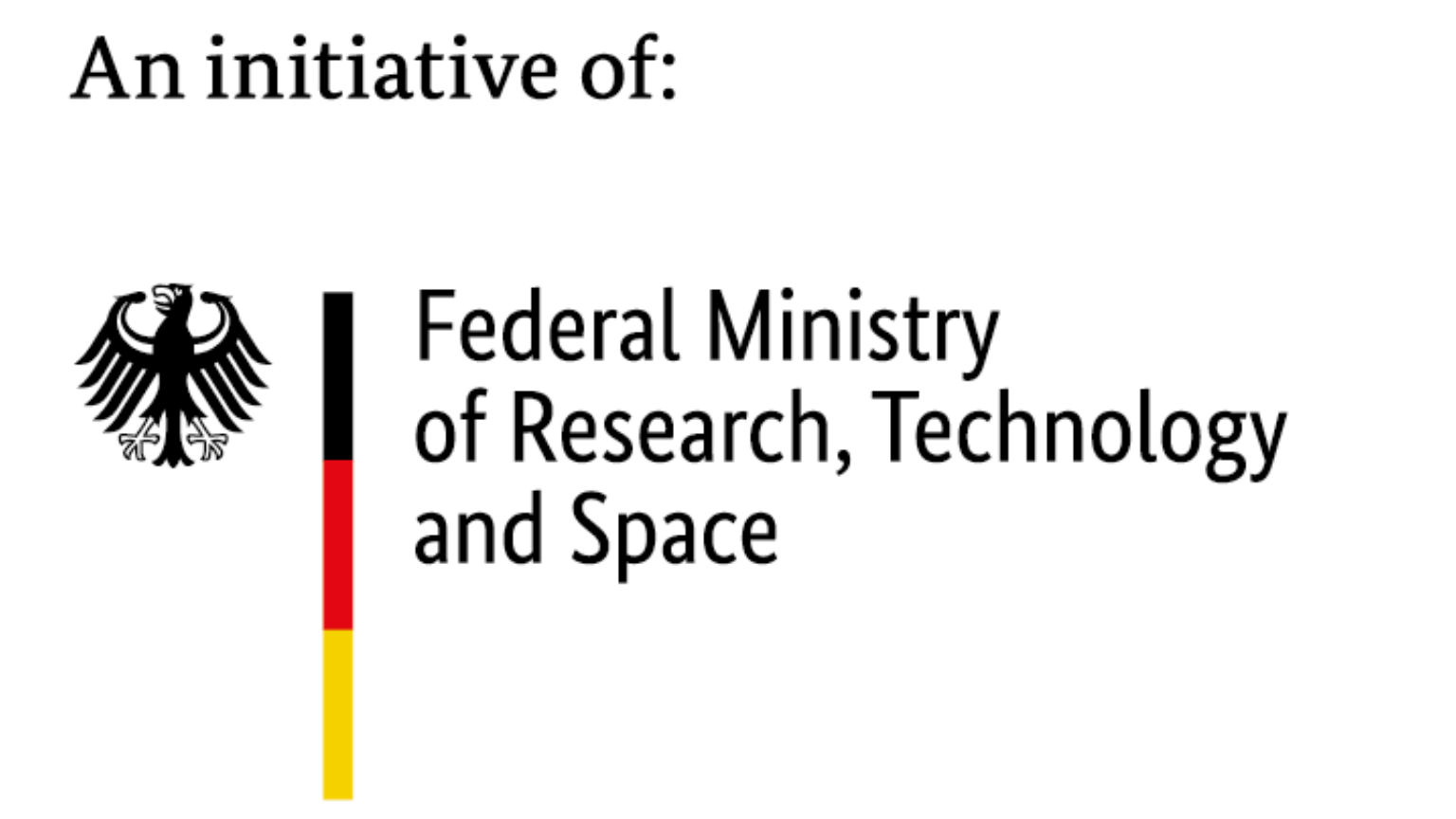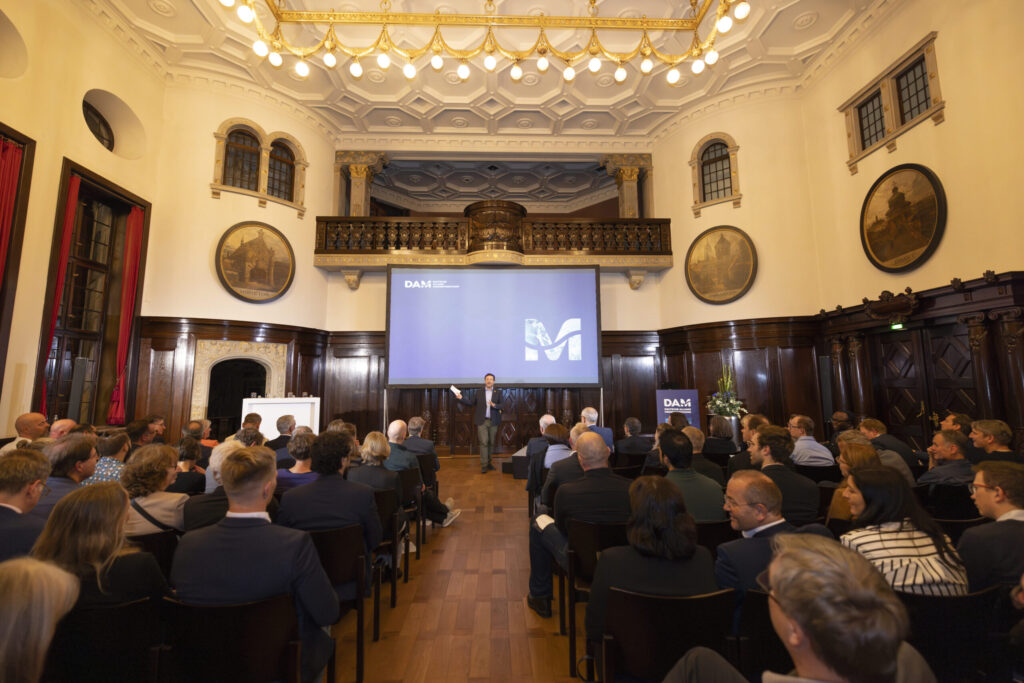
Parliamentary evening in Bremen: Impetus for the future of the oceans
“Science cannot take decisions away from politics, but it can and must provide us with its rational findings as a basis for our decisions,” emphasized Mayor Dr. Andreas Bovenschulte in his welcoming address at the Parliamentary Evening of the German Marine Research Alliance (DAM) on 21 October 2024 in Bremen. With these words, he opened an event that underlined the importance of marine research for politics in the state of Bremen. Around 100 guests from politics, science, business and organized civil society accepted the invitation from the German Marine Research Alliance to hear about the latest findings in marine research in the state and to engage in dialogue.
Oceans in a changing climate: challenges posed by new risks for coastal regions
The scientific part of the evening offered insights into current research results from the DAM research missions CDRmare and mareXtreme. Prof. Dr. Martin Zimmer from the Leibniz Centre for Tropical Marine Research emphasized that the reduction of greenhouse gases alone is no longer sufficient to achieve the Paris climate goals and in this context presented the potential of “blue carbon”, i.e. marine carbon stores, for climate protection (sea4soCiety, a joint project of CDRmare).
Prof. Dr. Achim Kopf (MARUM, University of Bremen), co-spokesperson of the mareXtreme research mission launched in January, demonstrated the role that networking with society and technology transfer play in research activities on extreme marine events and natural hazards. Dr. Katja Metfies (Alfred Wegener Institute) used the mareXtreme joint project Primeprevention to explain which methods are being developed to predict marine biological hazards (including to human health) and the extent to which this is meeting society’s need for information in this area.
Prof. Dr. Achim Kopf (MARUM, Universität Bremen), Co-Sprecher der im Januar gestarteten Forschungsmission mareXtreme, zeigte auf, welche Rolle Vernetzung mit der Gesellschaft und Technologietransfer bei den Forschungsaktivitäten zu marinen Extremereignissen und Naturgefahren spielen. Dr. Katja Metfies (Alfred-Wegener-Institut) erläuterte anhand des mareXtreme-Verbundprojekts Primeprevention, welche Methoden zur Vorhersage mariner biologischer Gefahren (u.a. für die menschliche Gesundheit) entwickelt und inwiefern damit dem gesellschaftliche Informationsbedarf in diesem Bereich begegnet wird.
The subsequent panel discussion with experts from science, politics, business and nature conservation emphasized the complex interrelationships of marine ecosystems and highlighted the urgent need for inter- and transdisciplinary cooperation in order to develop innovative and sustainable solutions for the protection of the oceans. Participating in the discussion were:
- Kathrin Moosdorf, Senator for Environment, Climate and Science Bremen
- Katja Metfies, Alfred Wegener Institute, Helmholtz Center for Polar and Marine Research
- Klaus Michels, FUGRO Germany Marine GmbH, and
- Finn Viehberg, WWF Germany.
Discovering knowledge about the oceans: two new DAM transfer portals published
Another highlight of the evening was the official launch of the two new transfer portals Oceans Online and Interactive World Ocean, which was given by Senator Moosdorf herself: “The DAM pools scientific findings and makes German marine research visible both nationally and internationally. At the same time, it shows solutions on how we can specifically counteract the climate crisis and marine pollution and deal with our oceans in a more sustainable way. The DAM makes it clear: we can do something! Through targeted transfer offers, these findings also reach politicians, companies and society,” said Moosdorf.
Afterwards, a get-together offered guests the opportunity to discuss various exhibits from DAM member institutions, among other things. For example, they were able to visit the research vessel Polarstern using 3D virtual reality glasses.
The evening in the ceremonial hall of Bremen City Hall highlighted the importance of transdisciplinary exchange between science, politics, business and nature conservation in order to develop viable concepts for the sustainable use and protection of marine resources – with scientific findings, for example on storm surges, serving as a basis for informed decisions and practical options for action.
Further information on the event can be found in the program of the parliamentary evening.
Newsletter
Always up to date with the DAM newsletter. (German only)
